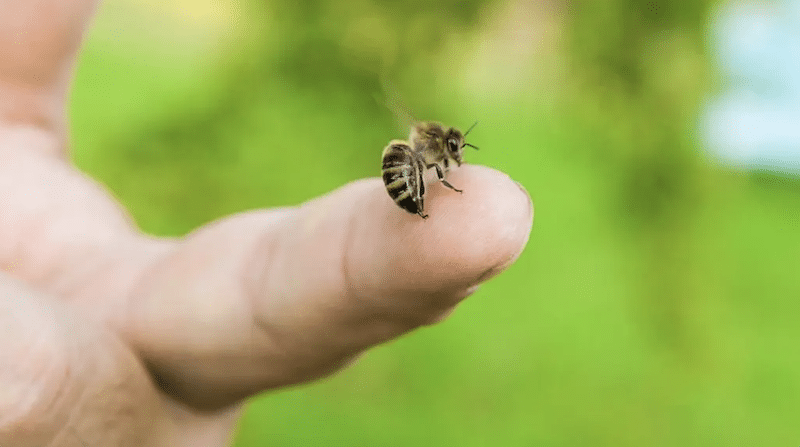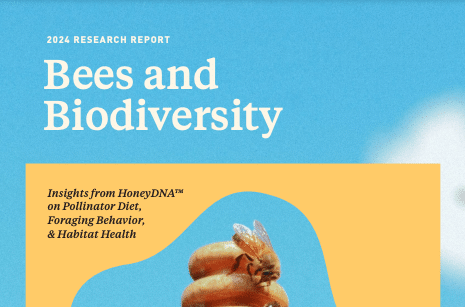What a year. 2021 was a year of learning, trying, and possibility. We’ve all had to adjust – adjust our business practices, ways of thinking, and adjust our commitment to the earth. For Best Bees, we had an incredibly fulfilling year of growth, learning, and success – and none of it would have been possible without the support and acceptance of you. You’ve helped make the mission of Best Bees thrive, and as we wrap up another year, we’d love to share all the things you’ve helped make possible.
How We Grew
Best Bees grew in 2021 – and we had some fun while doing it. In 2021 alone, we made 5,991 beehive visits across the nation and we have even more beehive visits planned for 2022. We also successfully installed over 300 new queen bees, opened 4 new operation facilities (San Francisco, Seattle, Denver, Washington D.C), and we expanded our practices into 6 new cities.
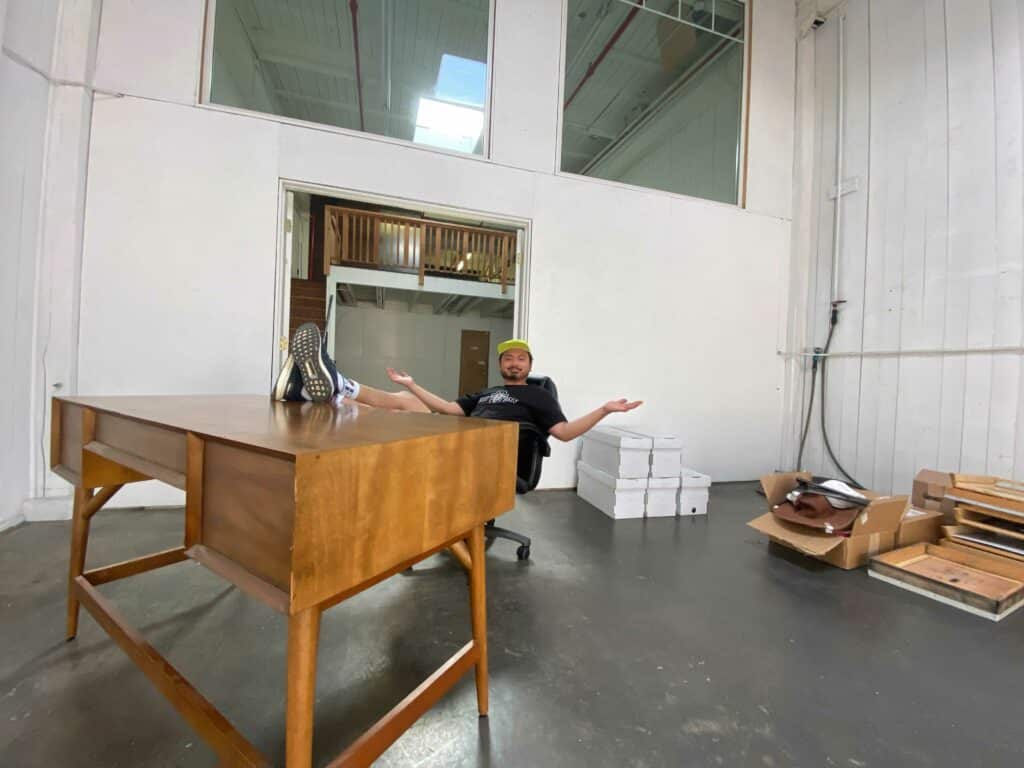
Because of this exciting growth, our small-but-mighty team also started to bloom. Best Bees brought on 15 new beekeepers across the nation in 2021. We also brought on a new Head Beekeeper, Nate! Nate was brought on to spearhead our beekeeping efforts for the entire Best Bees team. Nate now assists with training and best practice initiatives in Boston. We also brought on Emily, our Staff Scientist. Emily is one of the brains behind all of the important data that we’re able to produce and analyze for our clients – making their impact visible and easily digestible. Working closely with Emily, we’re grateful to have Dylan, who’s a mighty Statistician and impressive data analyst. Our newest Corporate Account Manager, Kira, is now the liaison between our team of experts and corporate clients. And we added another face behind growing our sales and business development efforts – Andy, our newest Sales Manager!
Our growth is due largely in part to the acceptance and curiosity of our clients and partners. Beekeeping, hive maintenance, and site visits allow us to continue data-gathering to assure that the bees are well-cared for and thriving. Without you, this growth simply wouldn’t be possible!
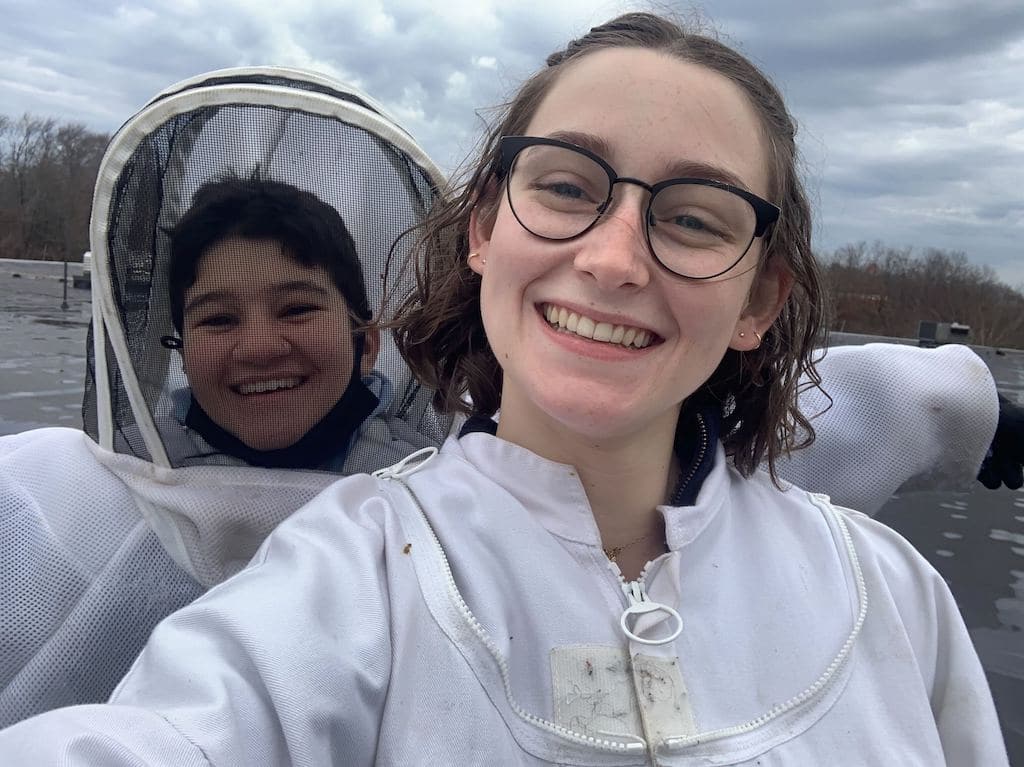
The Impact We Made
So what does this growth mean for the bees? Simply put, all of the data collected allowed us to publish the State of the Honeybee report. This report outlines the results from this past year and provides an in-depth analysis of all the benefits of keeping and nurturing your hives.
A few key points from the State of the Honeybee were:
- Beehive resilience in space: As a consultant to the MIT Media Lab, our founder, Noah Wilson-Rich PhD, helped design a test to see how queen bees and their workers would fare in the environment of outer space – including a rocket launch and reentry, with zero gravity. The students and Noah found that the student’s hypothesis was true – zero-gravity allowed the bees to produce healthy combs in every direction!
“In the future, as we set up outposts on the Moon, Mars and beyond, bees will be essential to how space pioneers sustainably feed themselves. This first test showed us that bees can exist, even thrive in space—which is great news for space programs to come.” Noah Wilson-Rich, PhD, Best Bees Founder and CEO
- Biodiversity mapping with honey: HoneyDNA can give ecologists and planners a more precise look at the local floral environment. We’ve been gathering data for 6 years and accumulated 502 unique plant species in our HoneyDNA samples from honey bees across the U.S.. This year, we discovered 30 new species, bringing our library to 532! This information can be used by local planning authorities to guide them in what to plant to mitigate environmental damage and to accelerate regeneration. Soon our sister non-profit, The Urban Beekeeping Lab will be launching its new website, with an interactive portal of HoneyDNA results. This data will reveal what plants are feeding the bees and where they are growing. Keep your eyes peeled for that.
- Impacts of queen rearing: In 2021, we initiated a queen rearing program to help implement sustainable bee breeding operations. The goal is that more bees will be raised locally to meet the specialized needs of each environment. Our initial efforts began with strong colonies we flagged from our database, based on calmness, brood size, honey production, and the limited presence of mites. Be sure to check out our blog for all things queen rearing to learn about our process: “Queen Rearing Programs Around The World”.
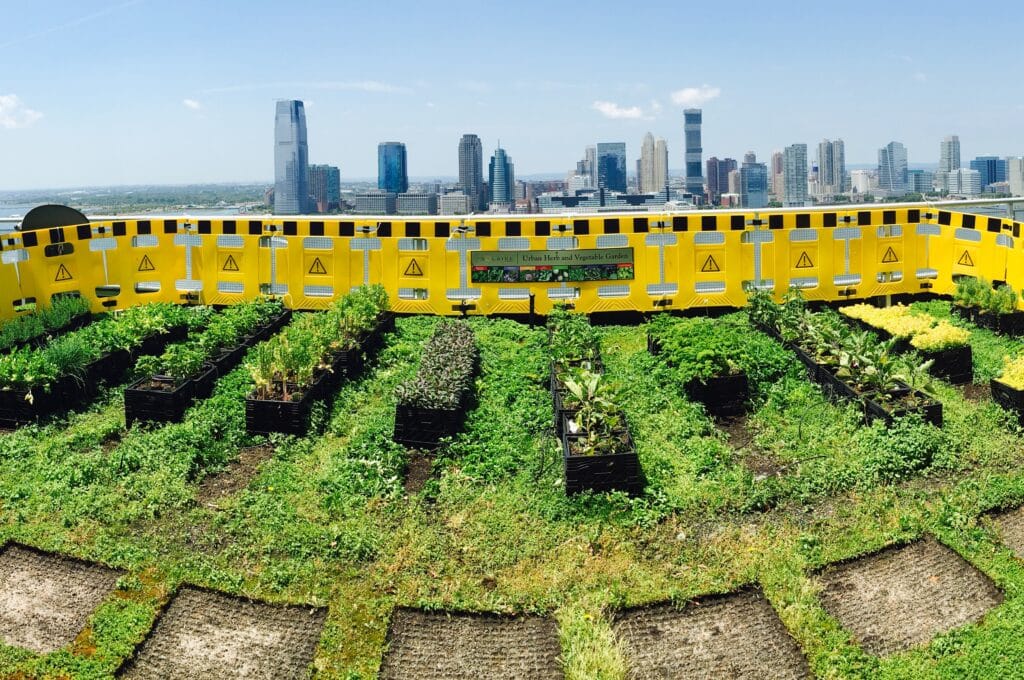
Your bees continue to make a difference. Did you know that your honeybees contribute to 10 of the UN’s Sustainable Development Goals? Without you, our efforts to support climate research and biodiversity would be impossible. Our network of honeybee hives have the potential to impact even more global goals, like zero hunger, good health and wellbeing, and creating more sustainable communities. These tiny insects make a world of a difference – and your support will help us continue to gather data and share the current state of our honeybees. We can’t thank you enough!
Recognition + Support
We’re incredibly honored that our recent efforts have been recognized by a few of the organizations that we wildly admire. In 2021, Best Bees was acknowledged as a Certified LGBT Business Enterprise®, recognized by the National LGBT Chamber of Commerce. The NGLCC is an advocacy organization dedicated to expanding economic opportunities for LGBT people and helping increase the number of LGBT-owned businesses.
Best Bees was also recently awarded by the Sustainable Business Network of MA as a SBN Sustainable Business of the Year. SBN is an important organization committed to helping businesses become better advocates of social, environmental, and economic change. Our founder, Noah Wilson-Rich, PhD, will be interviewed on January 27th by NPR’s Robin Young during the annual SBN award ceremony – so be sure to tune in!
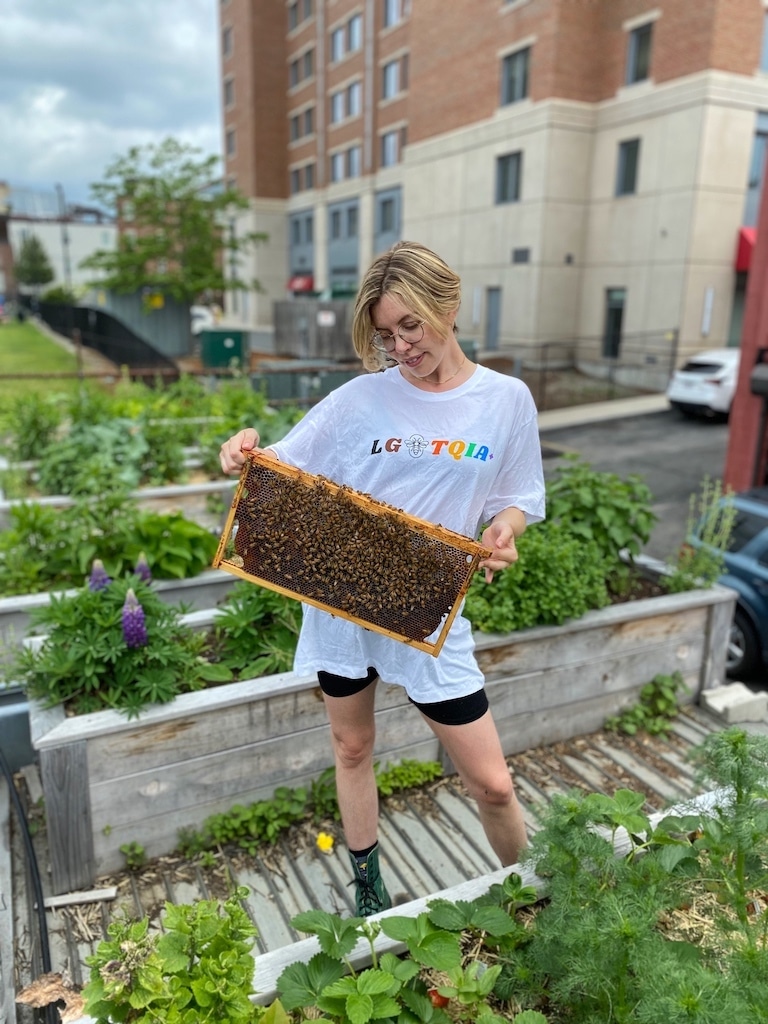
We loved to see it!
And now, some more fun facts about the year! You seemed to have loved our blog post about the world’s smallest, largest, and weirdest bee species, because it was our most popular blog post to date. We also joined in on the internet fun and created this popular post to highlight the Green New Deal when Bernie Sanders made an iconic appearance at the Presidential Inauguration (more than 20,000 people saw this post!). Anyone know how Bernie’s hives are doing?
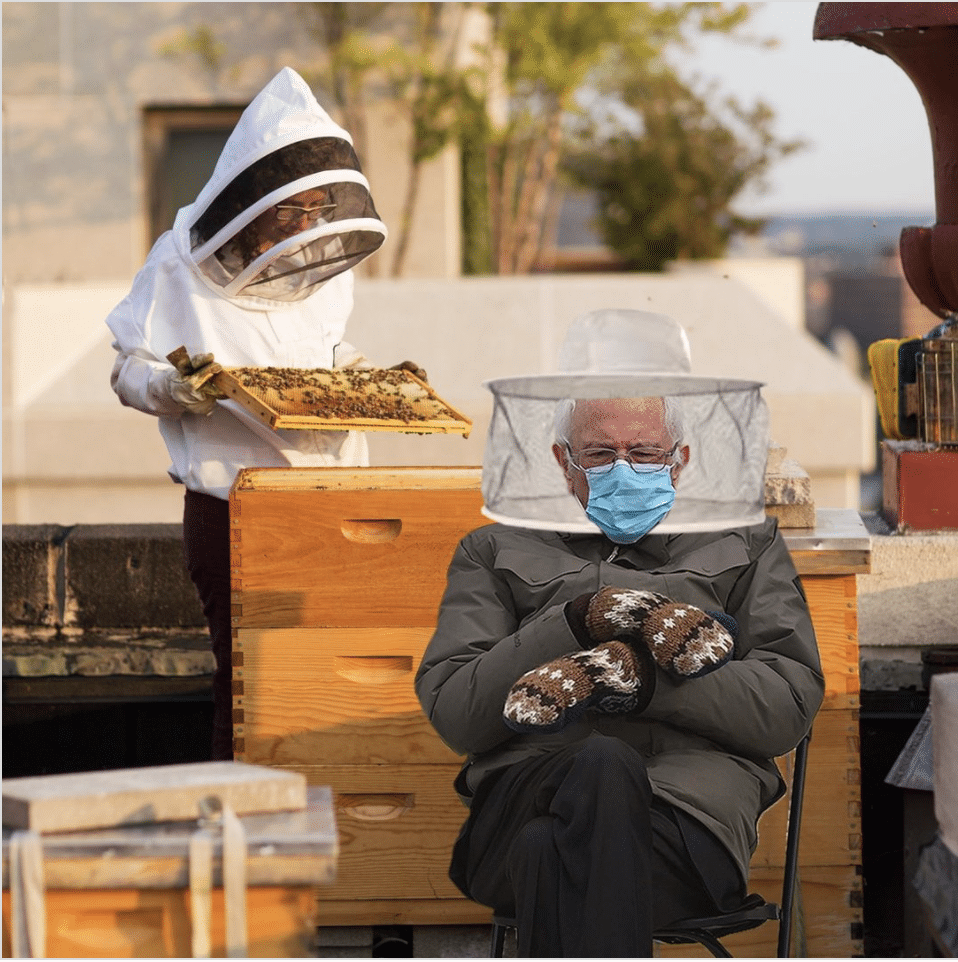
Looking Ahead: 2022
So, what’s on the horizon for Best Bees, our friends, clients, and partners? For starters, our team is looking forward to analyzing more data, running more experiments, and even starting to calculate how much carbon a beehive sequesters naturally.
We’d be lying if we didn’t say that we’re most excited to get back out into the field and bring even more curious, thoughtful, and caring people and businesses into our science-backed movement. To all of our current clients, thank you for choosing Best Bees – your commitment to pollinators shows the belief you have in what an impact these little earth-warriors can make!
If you haven’t renewed your subscription yet, you still have time to recommit to bees in 2022…and to even reserve your very first hive with us.
Until then, Happy New Year!





